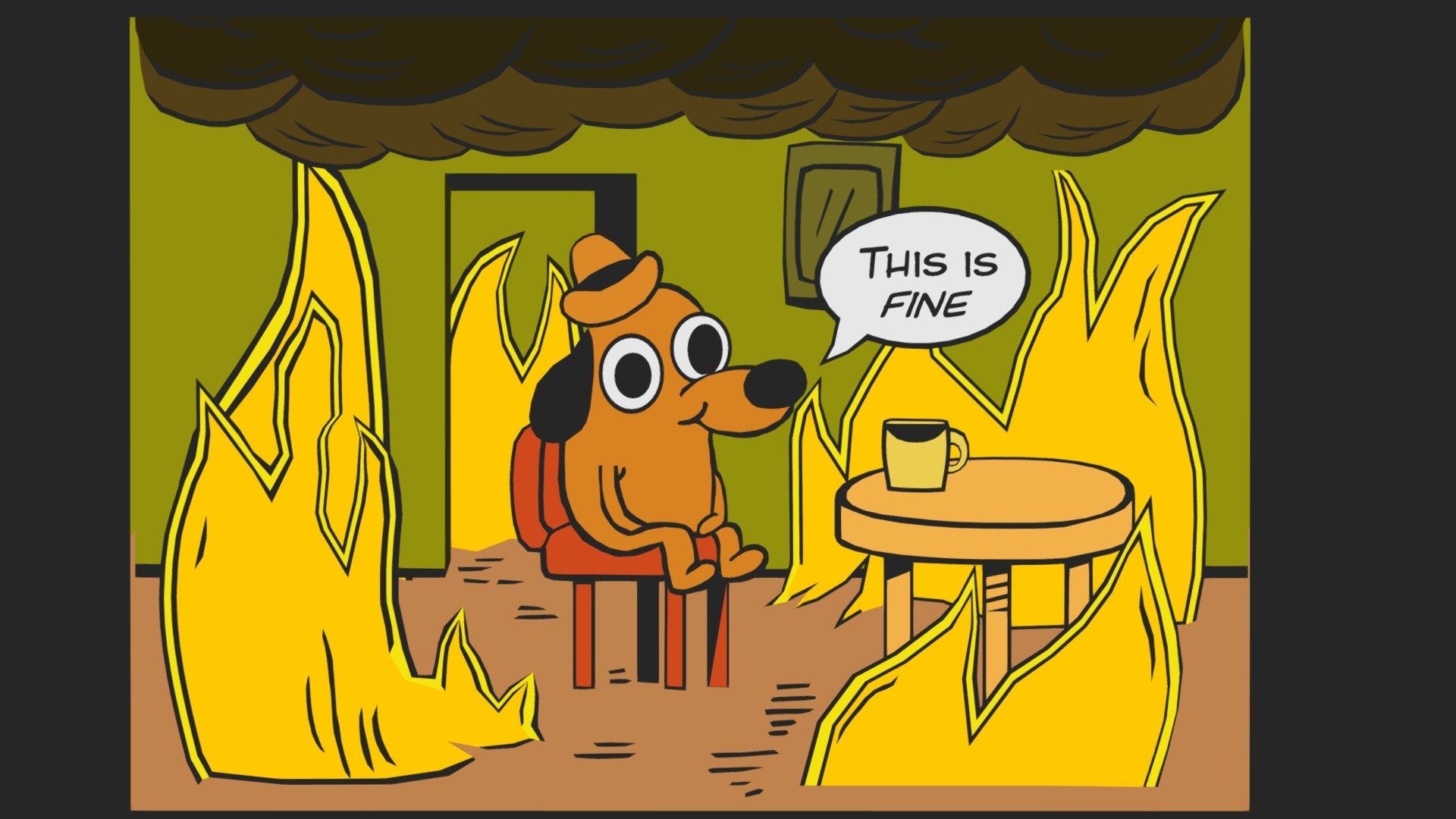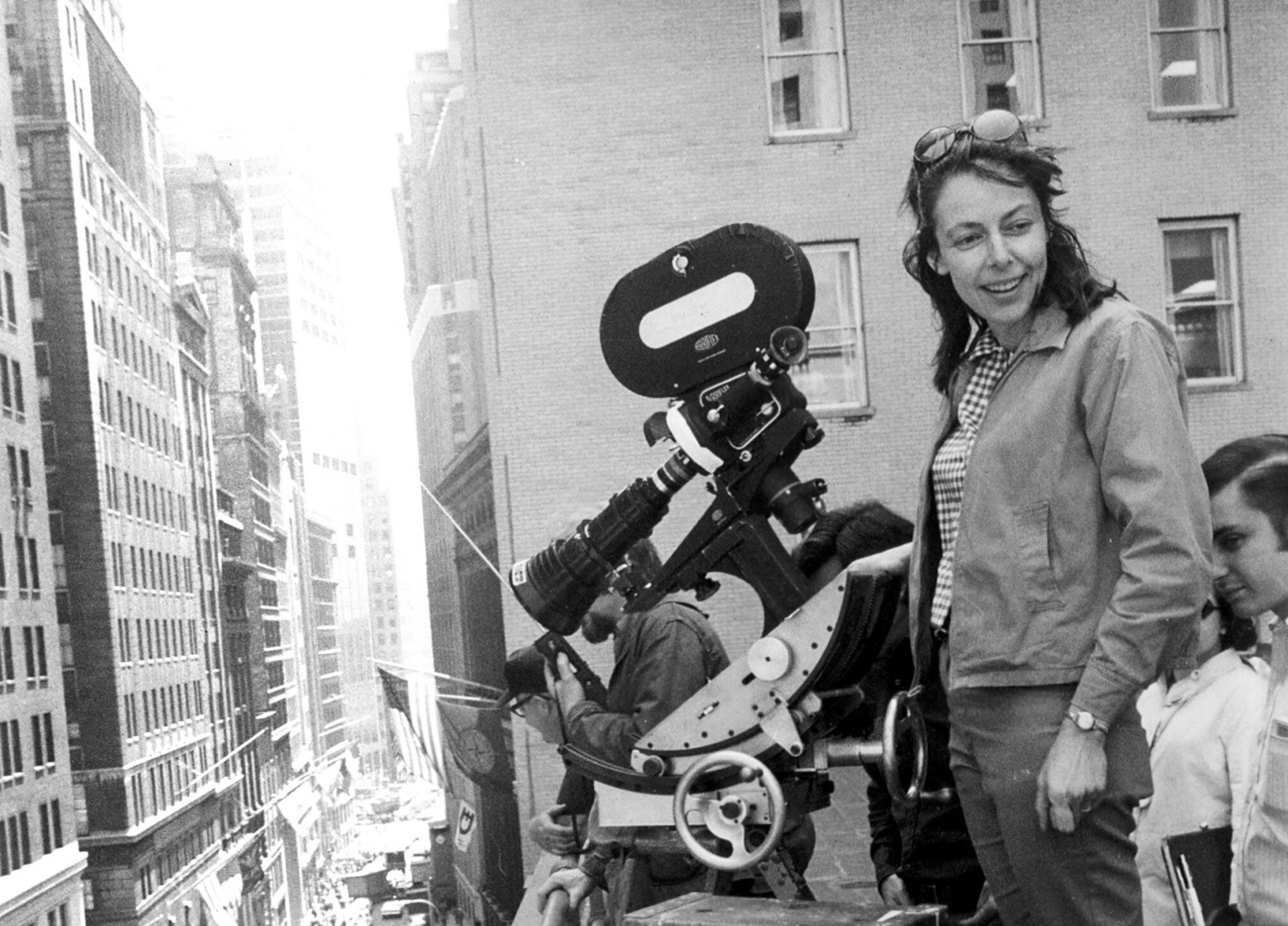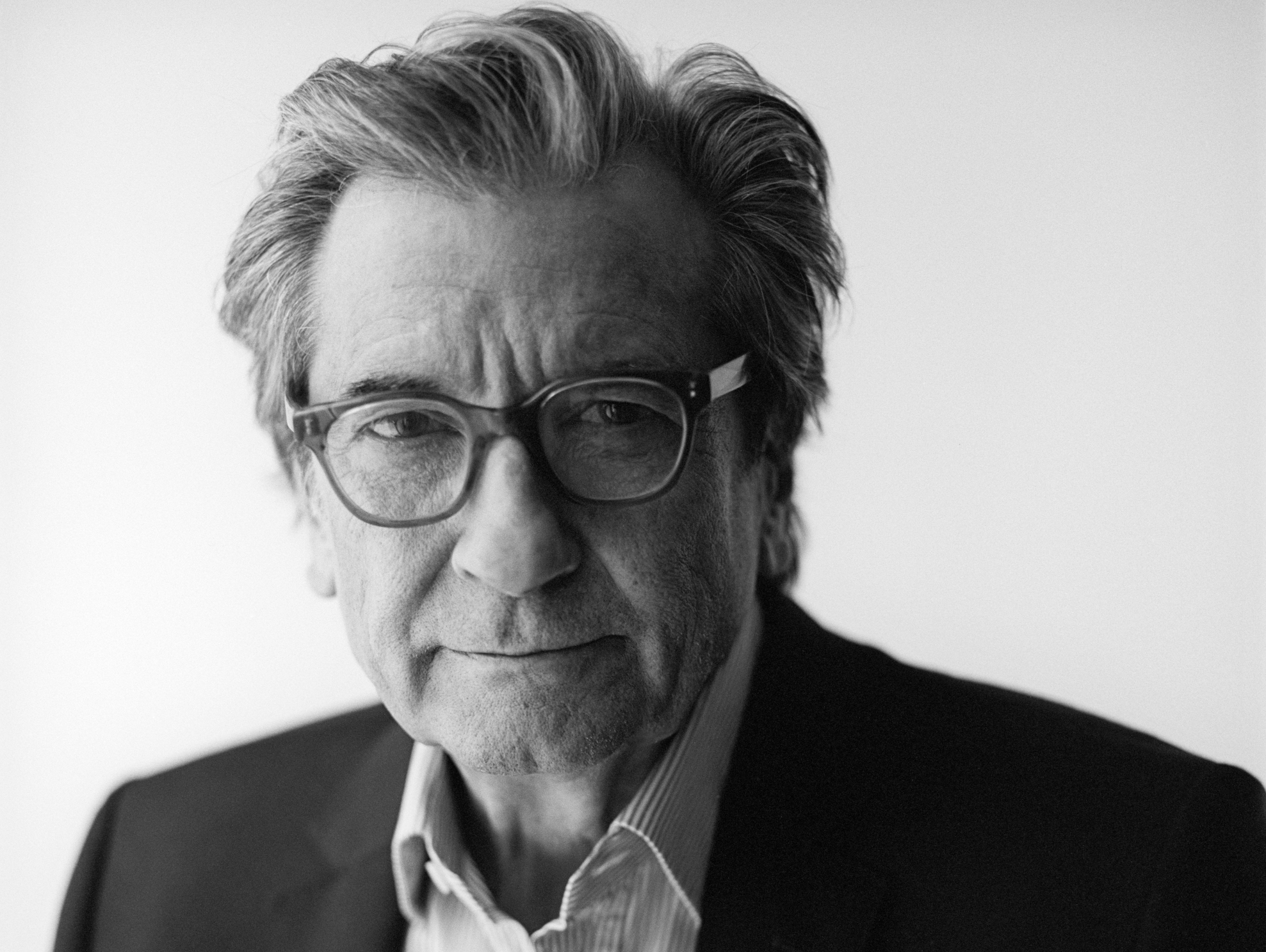Michelle Zauner on her heartbreaking debut memoir, “Crying in H Mart.” And George Carlin’s American Dream’ director, Michael Bonfiglio takes us through the life and career of a stand-up comedy titan. Also, Dan Chaon on his latest novel, “Sleepwalk,” a rollicking road trip through America in the near future.
Featured in this Show
-
Remembering her late mother, Michelle Zauner's memoir honors their shared Korean heritage
Michelle Zauner is not only a literary star, she’s a literal rock star. Her debut memoir, “Crying in H Mart” is a critically-acclaimed best seller. And when she isn’t busy writing books, she’s a singer and guitarist for her alternative pop band, Japanese Breakfast.
You may have caught Japanese Breakfast on the season 47 finale of “Saturday Night Live,” on May 21. If you missed it, we’ve got you covered:
Zauner recently joined Wisconsin Public Radio’s “BETA” to talk about her memoir, and the impact her mother’s death had on her.
“My mom was a Korean woman, and she passed away in 2014 from a short battle with cancer. And I found myself going to H Mart after she died, as a way to connect with her memory and this culture that we shared,” Zauner said.
Zauner’s father is white, so she counted on her mother to share her Korean heritage with her. And while her mother didn’t teach her how to cook, she raised Zauner to appreciate Korean food — most of which they bought at H Mart, a chain of Asian supermarkets that specializes in Korean groceries. The “H” stands for “han au reum” which roughly means “one arm full of groceries.” The first H Mart opened in Woodside, New York in 1980. Today, there are almost 100 stores in the U.S.
As Zauner writes in her book: “I’ll cry when I see a Korean grandmother eating seafood noodles in the food court, discarding shrimp heads and mussel shells onto the lid of her daughter’s tin rice bowl.”
“I think it’s just such an intense, nostalgic feeling to be in this grocery store with ingredients that remind me of dishes that my mother made or ingredients that she adored and exposed me to,” Zauner told “BETA.”
Zauner described her relationship with her mother as “complicated” and admitted that it “could be tumultuous.”
“But my mother was a homemaker, and I was an only child,” she explained. “So we were very, very close and very much in each other’s lives. But also, I was fiercely independent. And she also had a real vision for me that wasn’t really going according to plan.”
Her mother’s vision was for Zauner to reach the height of her potential. That didn’t include her daughter’s desire to become a rock star.
Grieving her death
After Zauner’s mother died, her relationship with her father changed.
“Our grief just took us over in very different ways, and it was difficult to support and connect with one another for some time,” she said.
Zauner points out that they were also in very different chapters in their lives. Zauner was 25, just starting her adult life. On the other hand, her father was at the point in his life where he was ready to retire with his wife and enjoy their life they had spent 30 years building together.
“And suddenly, we had to reconstruct what our next chapters were going to be in the wake of her loss,” Zauner said.
Part of that reconstruction was learning about the woman Zauner’s mother was when she wasn’t being a parent or wife — leaving some of her true feelings and desires to herself, and for herself.
“I think that my mom was very impressive in that way,” Zauner said. “She was very private and could be very stoic and withholding and mysterious in this way.”
Zauner continued, “I think that’s very true of many people. That there’s this kind of hidden 10 percent that you keep from different people in your life.”
After her mother died, Zauner tried to connect with her father and her aunt in an effort to discover the 10 percent they knew about her. She remembers her aunt telling her that her mother really missed Korea and that was why her mom behaved a certain way. Zauner initially had her doubts about that theory.
“But then it kind of dawned on me, maybe that was just something that my mom never said to us because she never wanted us to worry about her missing home,” Zauner said. “But of course she did. And of course she would say that to her sister, who she could confide in, that she missed home.”
“I think that it’s a very kind of American concept to be yourself and be honest all the time that I think that sometimes withholding information or keeping secrets from people is actually the stronger and more powerful thing to do,” she continued. “That, to me, is a more generous and loving gesture than being completely honest with your feelings all the time.”
In addition to “Crying in H Mart,” Zauner also considers most of Japanese Breakfast’s debut album, “Psychopomp,” to be a tribute to her mother.
“‘In Heaven’ is very much about that time in my life,” she said. “Just how difficult it was to be a non-religious person coping with loss.”
Orion Pictures is planning to make a feature film based on “Crying in H Mart.” Zauner has already written the first draft and is working on the revisions. She’s also supervising the soundtrack.
“I definitely don’t want to create an original score. I’m so done with the story that I don’t think I need to do every single thing involved with the story anymore,” she said.
“‘Garden State‘ was such a seminal coming-of-age film for people of my generation. And that soundtrack was such a big thing for people that I would love to have my version of that.”
-
The timeless genius of George Carlin
Editor’s note: This story contains language and videos that may not be appropriate for some audiences.
When he was a teenager, just after ninth grade, George Carlin dropped out of school. After escaping his late, abusive father, George had to battle an overbearing mother. When he turned 19, he had had enough and left his Manhattan home to pursue a career in comedy.
Early on in HBO Max’s documentary — “George Carlin’s American Dream” — directed by Judd Apatow and Michael Bonfiglio, George’s older brother Patrick Carlin shares an anecdote that displays the seeds of George’s trademark boundary-pushing comedy.
According to Patrick, when George left home he gave Patrick a small manila envelope with a note inscribed on the outside directing Patrick to open it when things got tough at home. Something inside would make him feel better. When Patrick finally did open the envelope, it contained a photograph of their father’s gravestone.
It’s just one of the dozens of personal touchstones that are used effectively throughout the two-part, nearly four-hour documentary that sheds so much light on the life and career and motivations of George Carlin, the comedy titan who all but invented the concept of the unfiltered comedy album and taught us the words you can’t say on TV. Carlin died in 2008.
Director Bonfiglio told WPR’s “BETA” that having that kind of access to Carlin’s loved ones (including his daughter, Kelly), friends and fellow comics, and his notes really helped complete the story.
“It was really incredible. George was a hoarder, which is a great thing for a subject of a documentary,” Bonfiglio says. “Oftentimes when you’re working on something where the person is no longer here to speak for themselves, they haven’t left behind quite so much as George did.”
“Seeing these letters from the early 60s when he and (George’s wife) Brenda were on the road and struggling — it humanized him for us,” Bonfiglio said.
In his youth, George was obsessed with the musicality and comedic timing of early Hollywood stars and hoped one day to emulate them.
“He looked up to people like Danny Kaye and Bob Hope, but especially Danny Kaye. He always cited (Kaye) as one of his heroes,” Bonfiglio said. “He had this dream very early on as a kid. He really wanted to be a comedic movie star, not a stand-up comic. He sort of saw comedy as a way to that ultimate goal of being a movie star, but clearly it didn’t quite work out that way, and I think we’re all fortunate too that it didn’t.”
Instead, George teamed up with his radio partner Jack Burns to perform as a comedy team. They were successful enough but eventually split.
George decided to continue solo and began to see the world of comedy changing too.
“It’s 1960 and this is a time that comedy is changing and moving away from the post-vaudevillian kind of comedy to more edgy stuff. People like Lenny Bruce and Mort Sahl; the Second City; the Compass players Nichols and May,” Bonfiglio said. “George was going back and forth. After Burns and Carlin broke up, (George) was trying to find his way.”
New era of comedy
It was during the Vietnam era when George eventually realized that as comic in his 30s, he was relating more to the movement of the people in their 20s while performing for audiences in their 40s. He slowly began a “detransformation” away from the suit and tie comedy into the long-haired and bearded and anti-authoritarian comic he would be best known for.
Apatow and Bonfiglio’s documentary shows a fascinating passage where icon Bette Midler recounts the time when George attempted this new style of comedy.
“Bette Midler, interestingly enough, happened to be opening for him that night, and it was at the Playboy Club in Lake Geneva, Wisconsin. And George was playing to a very, what he would call, a very square audience. And he began to talk about consumerism and the Vietnam War. And he was basically run off the stage.”
“It was a seminal moment for him because he realized that the people that he was performing for were not the people that he related to, and he didn’t want to relate to those people. So those confrontations helped fuel his decision to change his persona, change his act and detransform into who he really felt comfortable being as an artist,” Bonfiglio said.
George would experience another seminal moment in the dairy state a few years later in 1972 when performing his famous routine of The Seven words You Can’t Say on Television at Summerfest in Milwaukee.
“There were police present who objected, and they arrested him. And he spent a night in jail, brought into court. And oddly enough, a young assistant (district attorney) happened to be at Summerfest. And what George was arrested for … it was not an obscenity charge. It was disorderly conduct, profanity.”
That assistant DA, Tim Schneider, was brought in by the judge to confirm if it was indeed disorderly conduct. He testified that it was not and that in fact, the crowd had given George a standing ovation.
“Oddly, the assistant DA served as a witness for George … and explained to the judge in court that there was no disturbance caused by these words, and so he was let go,” Bongfiglio said.
Longevity of George’s wisdom
As the 70s were coming to a close, George began facing a surprising and somewhat hurtful backlash from both audiences and his fellow comedians, like Cheech Marin and the cast of SCTV.
“He really hated being the butt of jokes. And he really did not like not being the guy who was being celebrated anymore. And I think that that drove his next creative phase,” Bonfiglio said.
That next phase of George’s career is likely the most notorious. In fact, it’s quite common to see clips of these HBO specials surfacing today reflecting a cynical prescience in George’s work. Or perhaps a timelessness to his craft.
“I think the fact that so much of what he talked about is still relevant is really disappointing. When you see him talking about the environment or big pharma or police brutality in the early 70s, and things really haven’t changed at all,” Bonfiglio said. “Comedy as an art form is generally kind of ephemeral. It’s often of its moment, and you don’t usually go back decades to find wisdom in comedy. And with George, that’s just not the case.”
Bonfiglio said that this lack of change also explains why George’s commentaries surface so often on social media today.
“I think he would react very similarly to how he reacted to the times that he lived in. I think he would be appalled and disappointed by our lack of caring for one another, by our greed, our hypocrisy, the way that our society is structured to benefit the wealthy and hurt the poor. I think we have our answers as to how he would feel based on the things that he said during his lifetime, because things haven’t really changed for the better, by and large.”
“George Carlin’s American Dream” is available to stream on HBO Max.
-
Dan Chaon's 'Sleepwalk' is an ever-accelerating comedic road trip through America
If you like to read propulsive, psychological suspense, you need to read Dan Chaon‘s novels and short-story collections. His work includes the bestseller “Ill Will,” which Publishers Weekly named one of the 10 best books of 2017. His short-story collection, “Among the Missing,” was a finalist for the National Book Award.
Chaon’s latest novel is “Sleepwalk.” Former BETA guest Rumaan Alam describes the work as “a frightening indictment of corporate power and the surveillance state, as well as a tender story about the depth of parental love.”
Chaon’s protagonist is a man of many names, including Will Bear and the Barely Blur.
“He’s a mercenary who works for a shadowy corporation called Value Standard Enterprises. Nobody really knows what they do,” Chaon told Wisconsin Public Radio’s “BETA.“
“He goes around the country doing odd criminal jobs for them, whether it’s delivering unfortunate people to an unfortunate job or cleaning up after a massacre or burning down a blogger’s house.”
Will has dozens of burner phones under various names. So when he receives a phone call from a 20-year-old woman who claims to be his biological daughter via one of the sperm donations he made many years ago, Will is very suspicious.
“He needs to figure out how to find her and kill her because she knows his name and knows where he is,” Chaon explained. “As things go along, he becomes more and more doubtful. And a lot of the suspense of the novel is him trying to figure out if this really is his daughter or not.”
“I feel like one of the things I was interested in is taking this isolated guy and bringing this spark of human connection into his life and seeing how that played out for him. Because despite his criminal ways, there’s a tender-heartedness about him,” Chaon said. “I think we see it even when he’s a little boy. There’s a kind of innocence and wistfulness and hope of making a human connection.”
Chaon admitted that there were a lot of challenges that he wanted to give himself while writing “Sleepwalk.”
Those challenges included writing the book in the first person and present tense, as opposed to the multiple points of view that are usually found in his novels. Chaon also wanted to compress the timeline so that it only lasted about two weeks. He also wanted to include more comedy, and he did that in the way he wrote Will’s voice.
“I’m trying to do all the genres. So this is my road novel,” Chaon said.
One of the great things about Chaon’s fiction is that so many of characters have difficulties with their thought processes. Why do so many of his characters struggle with self-doubt? Chaon said that’s, in part, him projecting himself through writing.
“I don’t go to the page feeling confident, partially because I don’t really know what’s going to happen next, but also partially because that’s just sort of one of the ways that I tend to live in the world — feeling a lot of self-doubt, feeling occasional bouts of self-loathing. And I guess it’s easy for me, too, to relate to those characters,” he said.
“Sleepwalk” is set in the near future, but Chaon took a subtle approach to the futuristic technology that he features in the novel. He explained he tried to add things that he thought were possibly or likely, such as surveillance drones and security drones.
“There are some robots that walk along the side of the road and advertise stuff. There’s some stuff with cloning and DNA and genetics that is mostly possible,” Chaon said. “I wrote about using animals to grow organs, and that was not happening at the time. But it is now.“
“It was a kind of practical decision, and I think a lot of writers are struggling right now with how to write about the contemporary experience because things are changing so rapidly,” he continued. “You know, like, by the time your book is finally published, it’s going to be two or three years down the line. And if you think about what things were like even two or three years ago, we’ve seen so many radical and crazy changes in our lives just in over a period of a couple years.”
Near the end of Sleepwalk, there’s a sentence that really captures what it’s like to live in 2022: “It was disconcerting to live in a time in which accepting reality required a suspension of disbelief.”
So how does this apply to the way Chaon lives his life these days?
“I guess I live my life, in part, in denial a lot — that maybe a lot of people do,” he said.
“There’s that meme with the dog drinking coffee in a burning coffee shop, and the dog is thinking, ‘This is fine.’ And I feel like in some ways, that’s all of us right now. We’re looking at terrible things barreling towards us. And there’s this helplessness that I think a lot of people feel.”
Chaon said “Sleepwalk” is a reaction to that sense of hopelessness, capturing the struggle of just getting through the day while also taking action to make things better.

(CC BY) Chaon’s all-time favorite film is Alfred Hitchock’s “Vertigo.”
“It’s had such a deep and abiding influence on almost all my novels and short stories, because it is so much about identity and about what’s real and what’s not, about whether other people are knowable. And it’s also about gaslighting. And I think all of those things are major themes in my books.”
Episode Credits
- Doug Gordon Host
- Adam Friedrich Producer
- Steve Gotcher Producer
- Steve Gotcher Technical Director
- Michelle Zauner Guest
- Michael Bonfiglio Guest
- Dan Chaon Guest
Wisconsin Public Radio, © Copyright 2025, Board of Regents of the University of Wisconsin System and Wisconsin Educational Communications Board.



